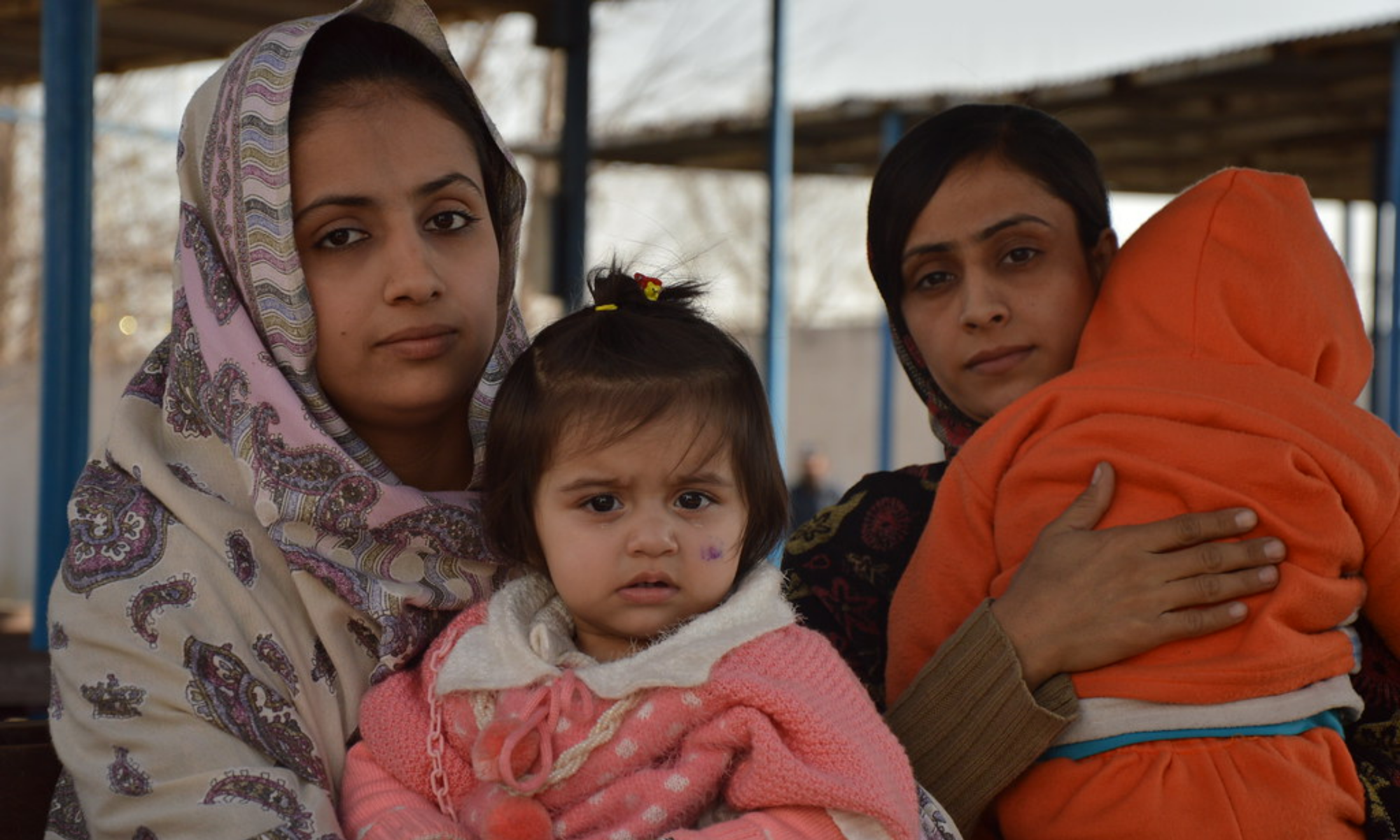
Liv Wetherly
Cultivating hope: how this charity is using floristry to help asylum-seeking women flourish
Bread and Roses uses flower power to support refugee women.
Kate Bernstock
20 Jun 2021
The power of nature is undisputed – which is why the work of refugee charity Bread and Roses feels so refreshing. Launched in Hackney in 2016, the award-winning organisation runs eight-week floristry training programmes for asylum seeking women from around the world.
Using a model based on scientifically backed theories about the therapeutic benefits of working with flowers (all of them sourced from British suppliers to minimise climate impact), it offers a safe space for creativity, language and vocational skill development and friendship building, while also providing practical information about local support services.
The charity appears to have created a space of genuine equality, a far cry from the many paternalistic services available to asylum seekers which ‘other’ more than they empower. Sessions centre the knowledge brought by Bread and Roses participants, rather than educators, with the expectation that women going through the often-isolating asylum seeking process will have a greater understanding of how to emotionally and practically support one another than any group facilitator may be able to do.
We caught up with five of the programme’s participants to talk about the creative inspiration behind their bouquets, the importance of climate justice, and why Bread and Roses has fostered a safe and nurturing space.
“It feels nice to be a part of reclaiming what has been lost” – Acacia*
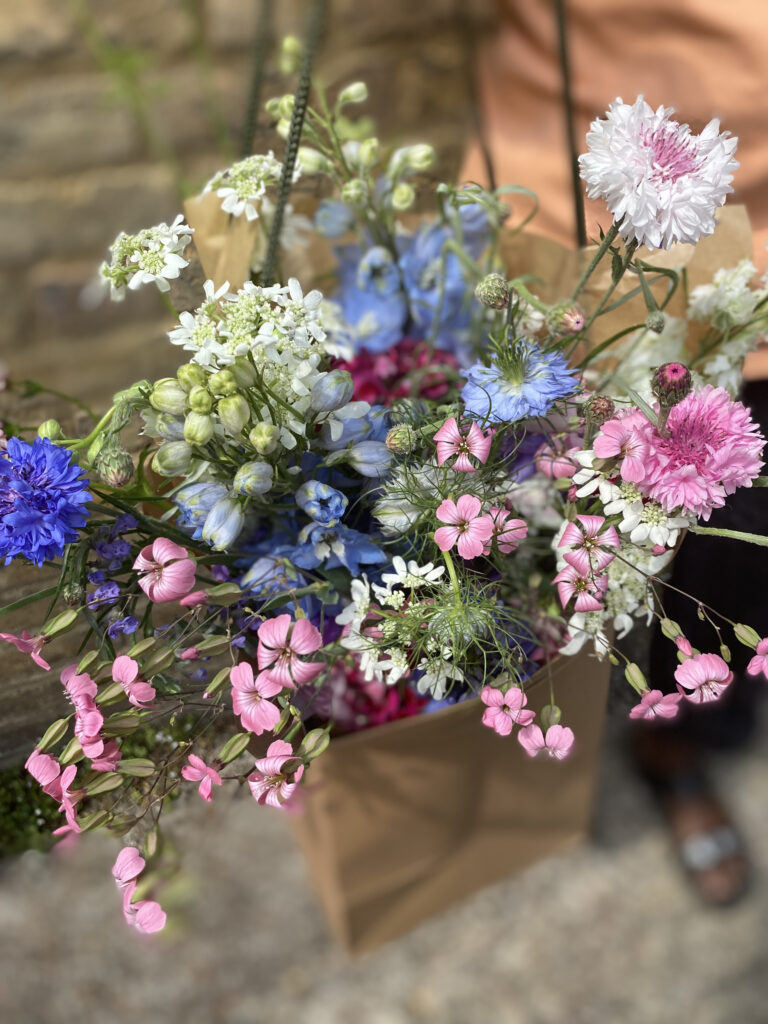
Acaica* has “always loved…botany” and since secondary school has been intrigued by the “people who have mastered the craft of making spaces look really beautiful” by using floristry. For her, the idea of seeing and being seen is a theme that runs through her work.
Acacia explains that unlike other provisions for refugees, which can often reduce a person to their trauma, at Bread and Roses she feels appreciated for who she is outside of “what has happened to me”. It is a space, she says, for looking not only at “who we’ve been but at who we are going to be [and] cultivate…a sense of hope in the future, hope in ourselves and what we can become”.
This idea of communal growth seems pertinent in a nature-based organisation like Bread and Roses, and Acacia tells gal-dem that during a cultural moment where our attention is being directed towards environmental destruction, it feels nice to be a part of “reclaiming what has been lost”. For Acacia, nature has a way of bringing out the best in all of us, and the “intuitive” or almost meditative process of floristry is a powerful tool that Bread and Roses is using to recognise that.
“My grandmother’s roof was full of flowers” – Nigella*
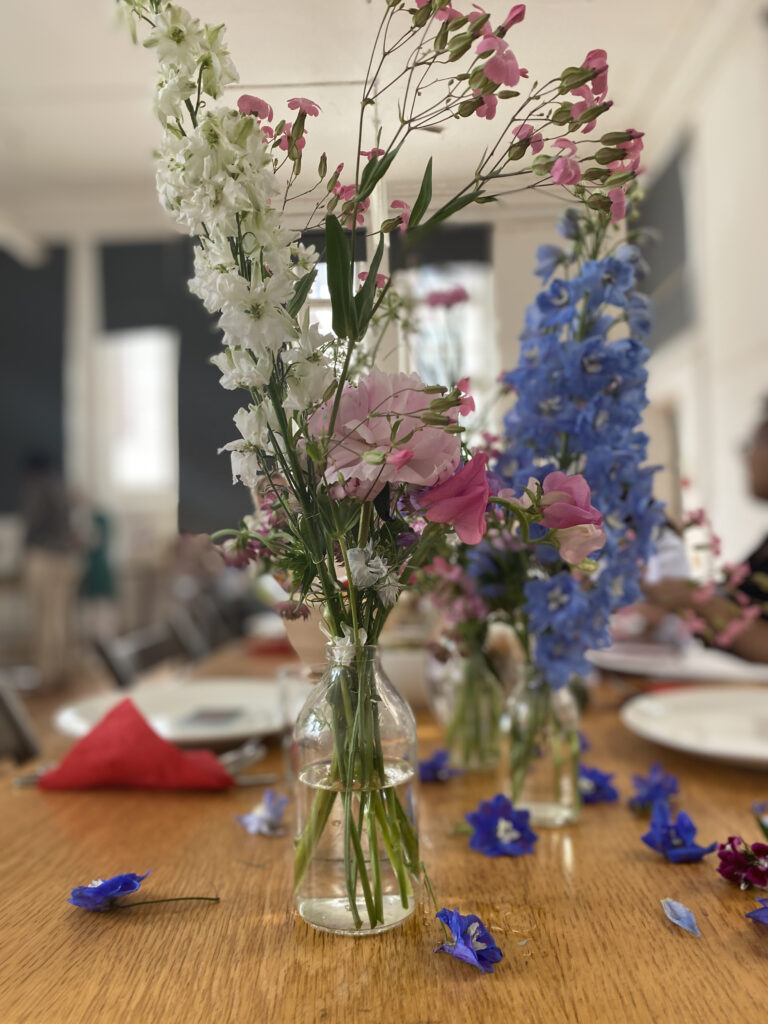
Nigella can always be found wearing a dress decorated with flowers and fittingly, her favourites just so happen to be red roses. As someone who has always loved flowers, and whose grandmother’s roof was “full of flowers”, Bread and Roses has been an opportunity for Nigella to re-engage with something that she loves to do. She describes her introduction to this space as “peaceful” and filled with excitement. Her love for flowers has been transformed into an ability to create intricate floral arrangements, attending classes throughout the “hard” time of the pandemic to master the skill of handling and arranging fiddly stems.
Her latest arrangement was filled with an array of sweet smelling flowers, including peonies, which she says she will be taking home to display on her dining room table for family to enjoy (until her brother’s hay-fever kicks in and she has to move them outside, that is).
“At home flowers were left untouched” – Flora*
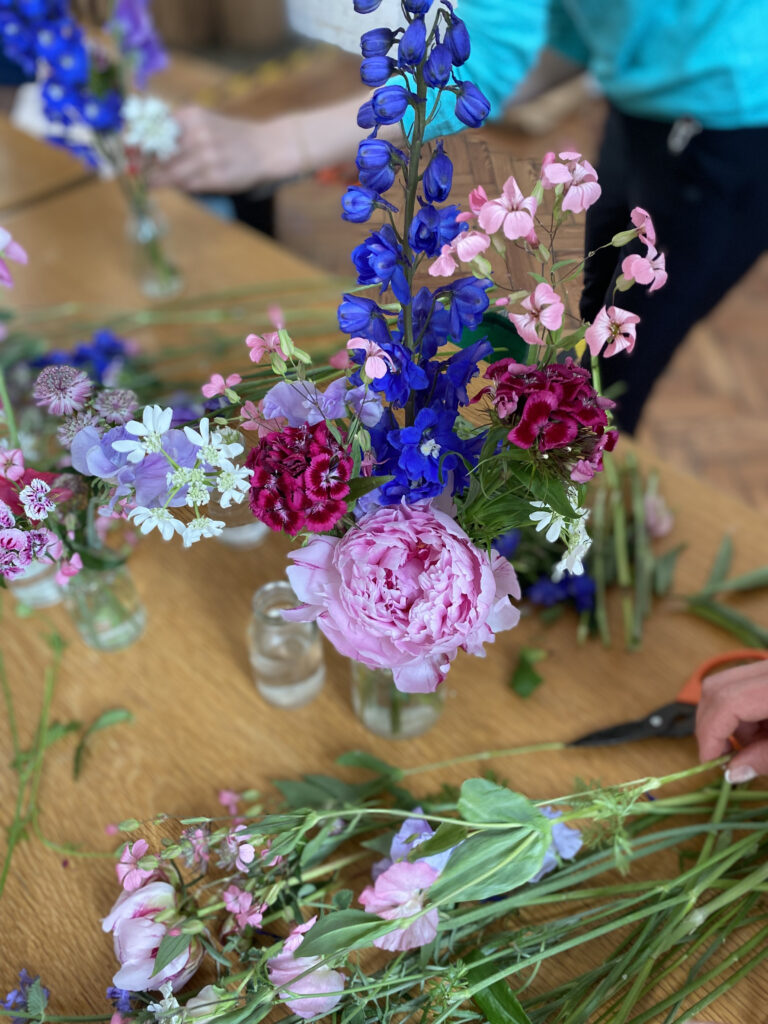
There are 57,000 cultivated forms of dahlias – which is why they’re Flora’s favourite flower. Flora, a make-up artist and trainee florist, has designed an elaborate multi-level bouquet full of colour and fragrant flowers. But living alone in the UK as an asylum seeker, she has not always found it easy to feel comfortable in herself. She credits the power of flowers that make her feel“ so positive” and dissipate “bad energy”. She finds relaxation when arranging them, and the friendships formed in the Bread and Roses programme have helped her replace shyness with a profound confidence.
Flora joined the programme a year ago and after the completion of the initial eight-week course, has returned on a monthly basis. Her attendance isn’t just for flowers, but also for the chance to learn from her peers, from chatting about the meaning of culturally-significant colours in their respective home-countries, to playing English language games. “I didn’t have any English”, Flora tells gal-dem of her arrival in the UK, but adds she’s become near-fluent in just one year. Flowers have become the symbol of her new community; at home, she explains, they had “plenty of flowers” but they would be left untouched, left to blossom independently. Here, they’ve brought her together with friends.
“Working with flowers makes my world feel complete” –Erica*
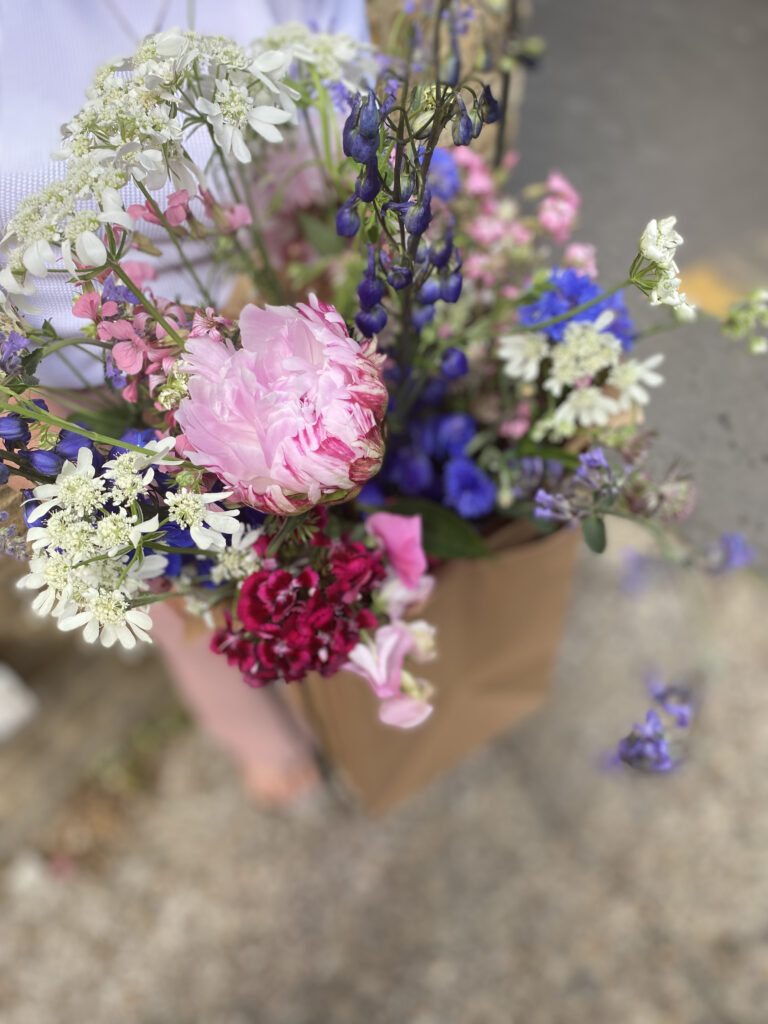
When Erica is working with the flowers at Bread and Roses, she feels like her “world is complete”. That’s not just because of the excitement that she has felt over the past eight weeks when learning to arrange flowers, but it is also because of the chance she has had to make friends “from another country”. In just that short period of time, she says, Bread and Roses has eased her into the world of floristry, guiding her to make arrangements with tulips and roses (her favourite flowers), to participating in games and mock interviews to improve her English. The extent of this support, and its effectiveness, is uplifting, a feeling of happiness which Erica says is reflected in her bouquet, designed to “make my world colourful”.
“Sweet-peas are so pretty when you see them, it’s happy” –Jasmine*
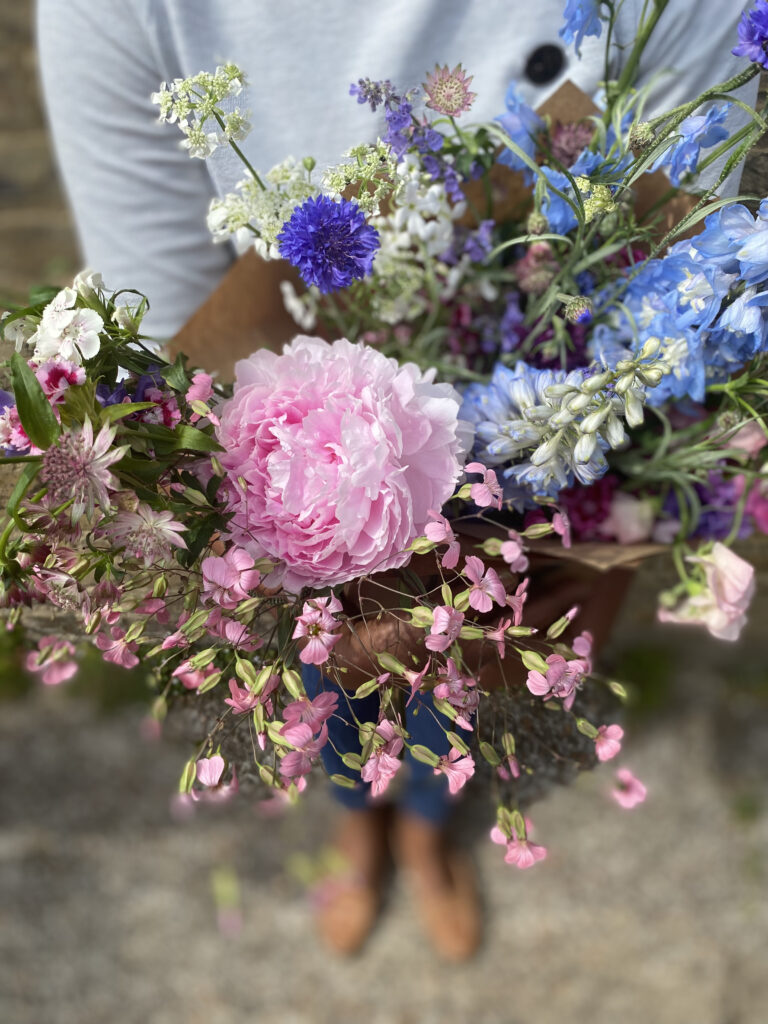
Jasmine* tells me that last week someone threw a small white flower away, thinking it was dead. She took it home, “protected it” and watched it come alive again. For Jasmine* who likes “any kind of flower”, floristry is a way to feel happy, and the more she works with them, the more she sees them everywhere in the world around her. She started the floristry course at Bread and Roses recently, and from entering the room to leaving, time flies by. Her most recent bouquet featured sweet-peas, a flower which, according to Jasmine*, are so “pretty that when you see [them] it’s… it’s happy”.
*Names have been changed





